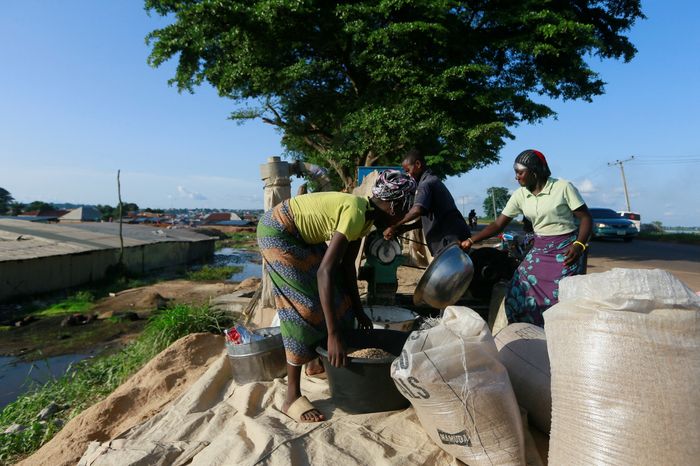Flooding across Nigeria has hobbled gas production and decimated thousands of square kilometers of farmland, the country’s government said Wednesday, aggravating fuel and food shortages across Africa’s most populous nation and potentially affecting gas exports to Europe as it braces for energy shortages this winter.
Several weeks of flooding have hit 33 of Nigeria’s 36 states, uprooted more than two million people from their homes and killed more than 600 people. More than 200,000 homes have been destroyed or damaged, making the floods the worst to hit Nigeria since 2012 and one of the worst for decades, according to the country’s humanitarian affairs ministry. Some 3,400 square kilometers of farmlands—roughly the size of Rhode Island—are completely submerged.
The flooding has cut off gas supplies to Nigeria LNG Ltd., the country’s largest gas producer, forcing it to declare force majeure on Monday, raising further fears over global supplies as governments in Europe struggle to replace Russian exports amid the raging conflict in Ukraine.
Nigeria, which is the largest gas exporter in sub-Saharan Africa with the biggest proven reserves, exported 23 billion cubic meters of liquefied natural gas to Europe last year. It is planning to build a new gas pipeline to Europe through Morocco to boost exports. Nigeria LNG exports mainly to Portugal’s oil-and-gas company
which said the flooding may result in additional supply disruptions.
Thousands of search-and-rescue workers have been deployed to assist affected communities.
The flooding has uprooted more than two million people from their homes.
Photo:
AFOLABI SOTUNDE/REUTERS
…
Click Here to Read the Full Original Article at WSJ.com: World News…

